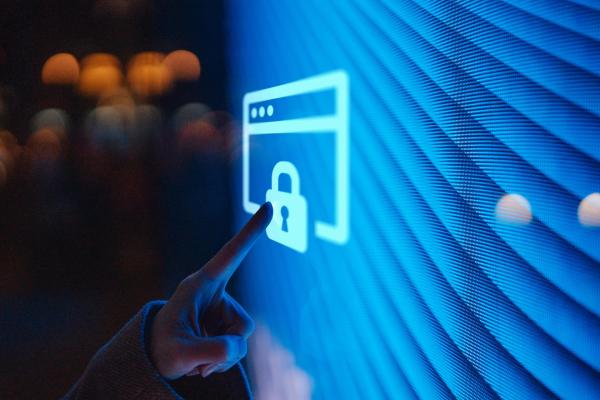Working in cybersecurity currently fulfils two functions. And both of them are essential for a country’s economic and social development. Firstly, it’s an area undergoing constant growth that offers excellent job opportunities. Moreover, every means of protection developed by a cybersecurity expert will be countered by a cybercriminal ready to breach it or create a new threat, as a result of which the profession will require new skilled technicians.
Secondly, companies need to enhance their cybersecurity so that they can conduct their business in comfort and without any fear of data breaches or document hijacking. SMEs in particular are being targeted by many of the above cybercriminals; according to a report drawn up by Kaspersky in May 2022, 64% of global SMEs have fallen victim to ransomware or data hijacking attacks. Almost 80% actually paid the ransom to the cybercriminals.
In view of the above, having outlined the two main reasons why the business IT security area is so important, the eternal question comes up: What does it take to work in cybersecurity?
Working in cybersecurity in Spain: common requirements
Check Point Software is a global technology provider of cybersecurity solutions and each year it draws up a study analysing the trends in cybercrime and reports on how it’s fared over the twelve months prior to the study. In this regard, global cyberattacks increased by 38% in 2022 with respect to 2021. This increase was largely driven by criminal groups exploiting the collaborative tools commonly used while working from home. Healthcare was also one of the hardest-hit sectors, as it witnessed the largest increase in attacks in 2022 in comparison with those suffered by other industries.
What about 2023? The upward trend in this kind of criminal activity is expected to continue; technologies such as ChatGPT provide an attractive gateway to companies’ data. The above serves to highlight how important it is to focus on IT security. But what does it take to be a cybersecurity expert?
This is what you need to work in cybersecurity
Infojobs, one of the most important job search portals, drew up a list of the most common requirements that companies demand when looking for a cybersecurity professional.
According to the job search portal, a higher technical engineering degree is usually required for this kind of work. This will lay the foundations for further specialisation in cybersecurity, which requires certain certificates. The ones most in demand are: CCNP, CCSA, F5 LTM, Palo Alto CNSE, SANS SEC-401, CISSP and CEH.
In addition to the above, applicants must have knowledge of programming languages such as C++, Python and Java, as well as a master’s degree related to the subject. Of course, English is compulsory for any job in cybersecurity and the different ICT (Information and Communications Technology) professions. The level of English required will be set by each individual company.
Beyond the academic requirements
In addition to the studies and languages that companies require of candidates for cybersecurity jobs, it’s appropriate for potential candidates to possess certain skills that will enable them to get a job much more easily. This is what the Immune Technology Institute has to say in this regard.
- Knowledge of computer science and everything related to system architecture, different kinds of cyberattacks and their peculiarities and, in general, the huge range of computer software and hardware.
- Being resolute with a talent for self-learning. Cyberattacks require people with excellent problem-solving skills and intuition to deal with issues as quickly as possible, as well as initiative, self-learning and stress management in crisis situations.
- Ongoing recycling. Technology constantly changes and, with it, the different ways in which a computer system can prove vulnerable. This is why a cybersecurity expert must be aware of the new programming languages, the latest threats and so on.
Other issues related to the cybersecurity profession
How much do IT security experts earn?
According to the latest report on remuneration in technology conducted by Michael Page, an ethical hacker (as cybersecurity professionals are also known), they can be paid differently, depending on the region they work in. For example, in the case of Madrid, a junior cybersecurity specialist with less than two years’ experience will be paid between 25,000 euros and 38,000 euros per year. If he/she has been in the industry for over ten years, this figure could be as high as 80,000 euros.
What’s the current demand for employment in the sector?
Spain currently has a talent deficit when it comes to cybersecurity. At least, this is what the Observaciber report titled Analysis and diagnosis of cybersecurity talent in Spain declares. The figures speak for themselves; there were 149,774 ethical hackers in Spain in 2021, a number that entailed a talent gap estimated at 26,024. We can therefore say that there’s currently more demand than supply.
Self-taught learning: is it possible?
If a person wants to undertake professional studies of this kind but he/she’s wary of taking the initial step, a good option is to sign up for a free course related to them. For example, the Conecta Empleo portal offers free MOOC courses for programming with Java Standard and JavaScript and the basics of programming. This is a good way of finding out whether the subject is as expected and whether it’s sufficiently attractive.
In short, the business cybersecurity area will continue to expand and face new challenges requiring professionals who are up to the task. 2022 and the subsequent years constitute an exciting future with excellent job opportunities in ICT technologies.









